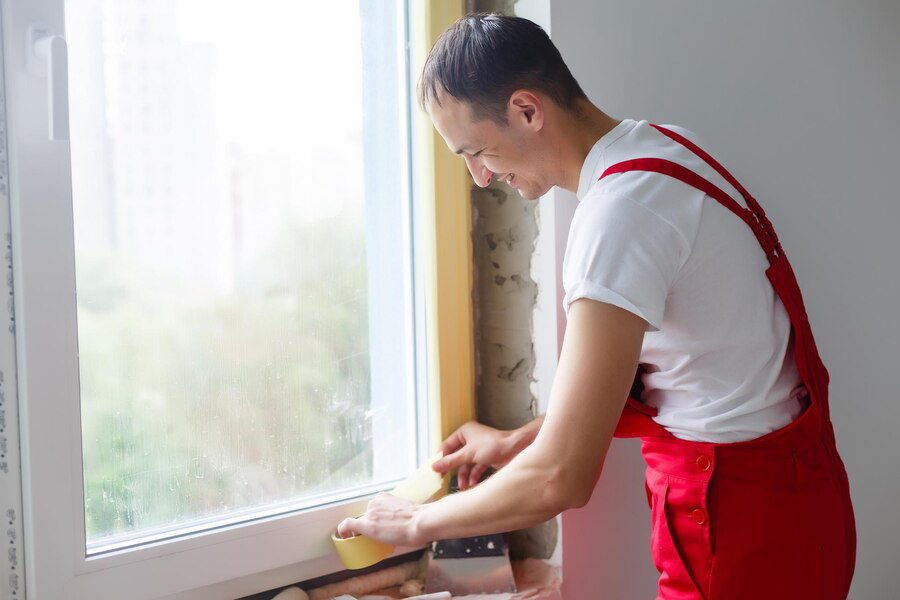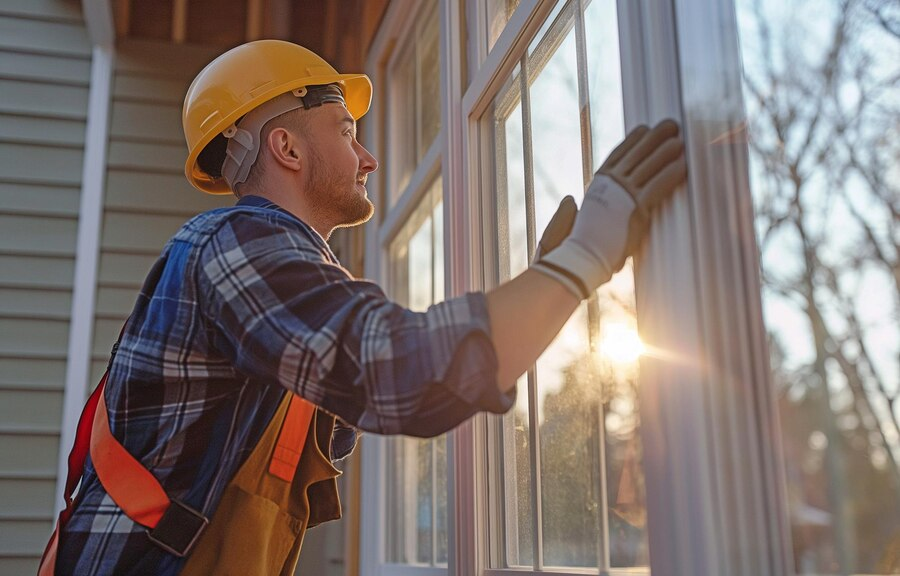
Replacement Windows: How They Affect Indoor Air Quality
When it comes to home improvement, replacement windows often top the list of upgrades due to their potential to enhance both aesthetics and energy efficiency. However, one crucial aspect that is frequently overlooked is how new windows can significantly impact indoor air quality. Old, drafty windows can allow pollutants, allergens, and outdoor contaminants to seep into your home, compromising your indoor environment. By upgrading to modern replacement windows, you can create a more controlled and healthier living space. Modern replacement windows are designed with advanced materials and technology to offer better insulation, reduce drafts, and minimize the infiltration of outdoor pollutants. This not only helps in maintaining a comfortable temperature but also plays a vital role in improving the air quality within your home. Understanding the relationship between replacement windows and indoor air quality can guide you in making informed decisions that benefit both your health and your home’s efficiency.
Maintenance Tips for Replacement Windows to Ensure Good Air Quality
Replacement windows are a significant investment in your home, not only enhancing aesthetics and energy efficiency but also contributing to indoor air quality. To ensure these benefits are maximized, proper maintenance is crucial. Here are eight essential tips to keep your replacement windows in top shape and ensure they continue to support good indoor air quality.

Regular Cleaning of Window Panes and Frames
Keeping your windows clean is fundamental to maintaining good air quality. Dust, pollen, and other contaminants can accumulate on the glass and frames, impacting air quality and reducing the efficiency of your windows. Clean the window panes and frames regularly with a non-abrasive cleaner and a soft cloth to prevent build-up. For hard-to-reach areas, consider using a vacuum with a brush attachment.
Inspect and Maintain Weather stripping
Weatherstripping around your windows is essential for ensuring a well-sealed and energy-efficient home. It acts as a barrier against drafts, helping to maintain a stable indoor temperature and reduce your reliance on heating and cooling systems. To keep your weatherstripping in optimal condition, it’s important to inspect it regularly for any signs of wear and tear, such as cracks, peeling, or gaps. These issues can compromise the effectiveness of your weatherstripping, leading to air leaks that not only introduce outdoor pollutants into your home but also decrease the efficiency of your HVAC system.
Check and Repair Window Caulking
Caulking is crucial for sealing the gaps between the window frame and the wall, which helps prevent air leaks and enhances your home’s energy efficiency. Over time, caulking can degrade due to exposure to weather, temperature fluctuations, and general wear, leading to the formation of gaps that compromise indoor air quality and cause energy loss. To maintain a tight seal, it’s essential to inspect the caulking regularly, checking for any signs of cracking, peeling, or deterioration. When reapplying caulk, choose a high-quality, durable product that matches the specific needs of your window type and the conditions it will face.
Ensure Proper Window Operation
Windows that fail to open or close properly can significantly impact ventilation and air quality within your home. Regularly testing your windows to ensure they operate smoothly is crucial for maintaining a healthy indoor environment. Check that they can be fully opened when needed to allow fresh air circulation, which is vital for good air quality. If you find that the windows are stiff or difficult to operate, apply lubricant to hinges and tracks to keep them functioning smoothly. Address any operational issues promptly to avoid further complications and to ensure that your windows contribute effectively to proper ventilation and overall indoor comfort.
Monitor and Address Condensation Issues
Excessive condensation on windows can signal underlying issues with insulation or ventilation in your home. While a small amount of condensation is typical, persistent moisture can create an environment conducive to mold growth and potentially damage window frames over time. To manage indoor humidity levels effectively, consider using a dehumidifier, which helps reduce excess moisture in the air. Additionally, evaluate and address any insulation problems to enhance your home’s thermal efficiency and minimize temperature differences that contribute to condensation. By managing both humidity levels and insulation, you can prevent condensation-related issues, safeguard your windows from potential damage, and maintain a healthier indoor environment.
Energy Efficiency and Its Impact on Air Quality
Energy efficiency in your home is more than just a buzzword—it’s a crucial aspect of maintaining both comfort and air quality. Replacement windows are a key factor in enhancing energy efficiency, and their impact extends beyond mere energy savings. By improving how well your home retains heat and cool air, energy-efficient windows contribute to a healthier indoor environment. Here are eight ways in which energy efficiency affects indoor air quality and how you can maximize these benefits.
Improved Air Sealing Reduces Drafts
Energy-efficient windows are designed to offer superior air sealing, minimizing drafts and reducing the infiltration of outside air. This helps maintain a consistent indoor temperature and prevents unwanted pollutants from entering your home. By minimizing drafts, you also reduce the workload on your heating and cooling systems, which can contribute to a more stable and healthy indoor environment.
Reduced Temperature Fluctuations
One of the primary benefits of energy-efficient windows is their ability to minimize temperature fluctuations inside your home. Consistent temperatures prevent the buildup of condensation on windows, which can lead to mold growth and affect air quality. By stabilizing indoor temperatures, you create a more comfortable and healthier living space.
Enhanced UV Protection
Many energy-efficient windows come with special coatings that block harmful ultraviolet (UV) rays from the sun. These coatings not only protect your furniture and flooring from fading but also help maintain indoor air quality. UV protection prevents the degradation of materials within your home, which can otherwise release harmful particles into the air.
Reduced Humidity Levels
Energy-efficient windows help control indoor humidity by reducing the amount of outside air entering your home. This is particularly beneficial in preventing excessive moisture build-up, which can lead to mold growth and poor air quality. By managing humidity levels, you contribute to a healthier indoor environment.
Lower Energy Bills Contribute to Healthier HVAC Systems
By improving the energy efficiency of your home, replacement windows reduce the strain on your HVAC system. This can lead to fewer breakdowns and longer intervals between maintenance, ensuring that your HVAC system operates efficiently and does not become a source of poor air quality due to dust or mold accumulation.
The Effect of Proper Installation on Indoor Air Circulation
Proper installation of replacement windows is crucial for maintaining optimal indoor air circulation. When windows are installed correctly, they enhance the overall efficiency of your home’s ventilation system, leading to better air quality and comfort. Here are the key points on how proper installation affects indoor air circulation:
- Seamless Airflow: Properly installed windows fit securely within their frames, ensuring that there are no gaps or leaks. This tight seal allows for controlled airflow, preventing drafts and ensuring that your home’s ventilation system works effectively.
- Prevention of Air Leaks: A precise installation prevents air leaks, which can disrupt indoor air circulation and introduce outdoor pollutants. By minimizing leaks, your HVAC system can maintain a consistent and clean indoor environment.
- Enhanced Ventilation: Well-installed windows can improve natural ventilation by ensuring that they open and close smoothly. This allows for effective air exchange and helps in maintaining fresh indoor air while reducing the buildup of stale air.
- Optimized Energy Efficiency: Accurate window installation helps in achieving better energy efficiency by preventing heat loss and gain. This efficiency helps regulate indoor temperatures, which in turn supports effective air circulation and comfort.
Conclusion
Investing in replacement windows is a crucial step toward enhancing your home’s indoor air quality. By selecting high-performance windows, you not only improve energy efficiency but also reduce the infiltration of pollutants and allergens from outside. This contributes to a healthier living environment and potentially lowers your utility bills. The benefits of upgraded windows extend beyond mere aesthetics, playing a significant role in the overall well-being of your household.
For personalized advice on choosing the right replacement windows for your home, contact EZ Window Solutions of Strongsville today. Our team of experts is here to help you make informed decisions that align with your needs and preferences. Call us at +1 (440) 230-3838 or visit our Strongsville, Ohio location to start your journey toward better indoor air quality and comfort.


Write a Comment